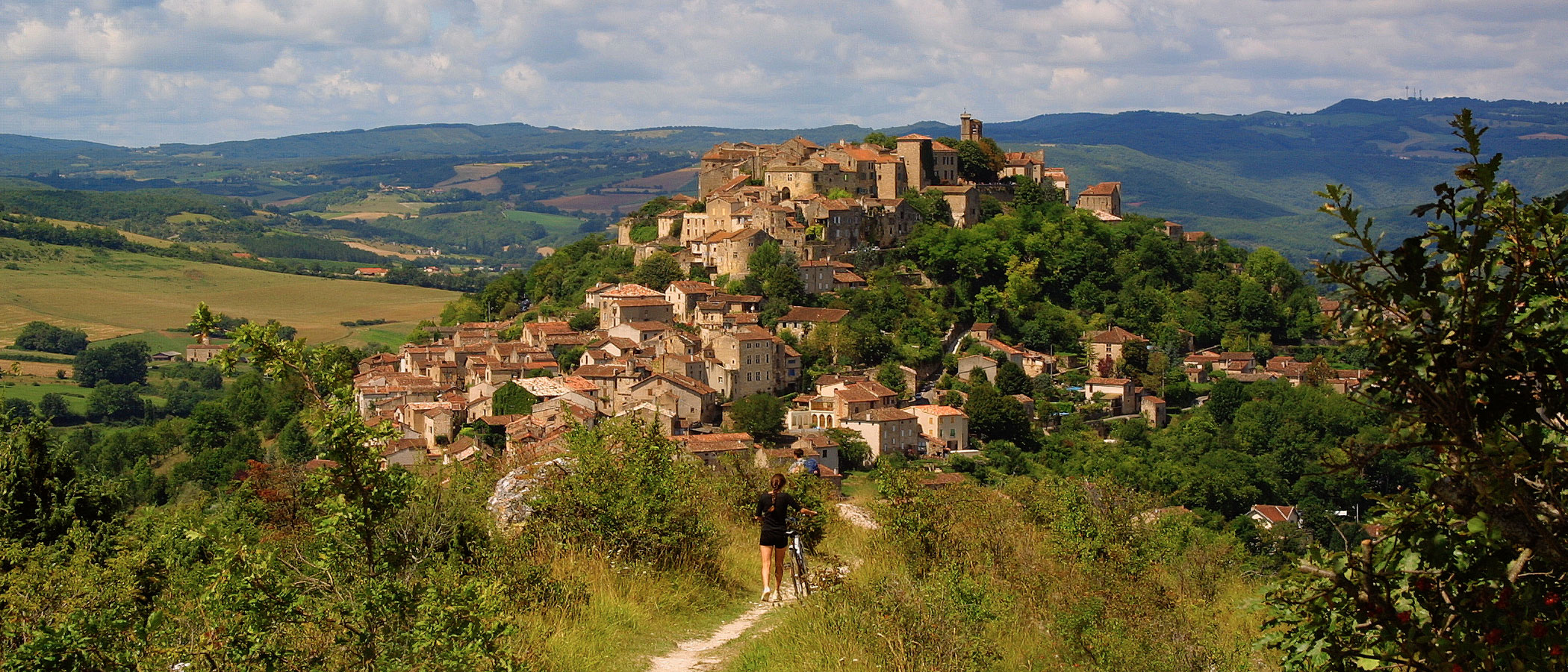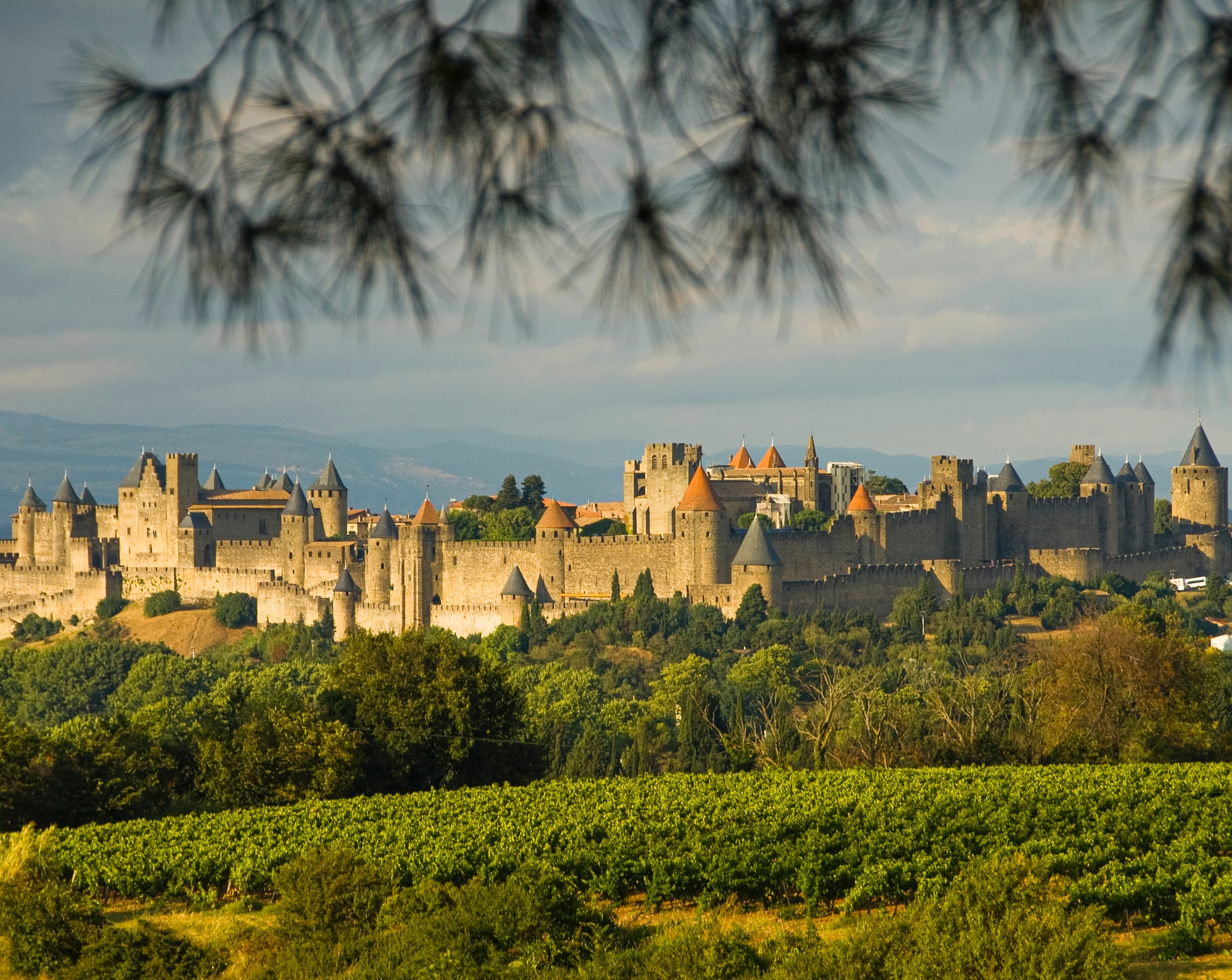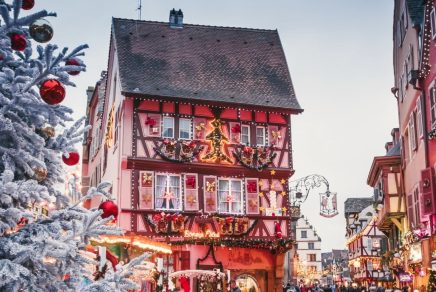The city of Toulouse, bathed by the sun of southern France and lulled by the gentle breezes of the Pyrenees, is a pleasant blend of heritage, traditions and joie de vivre. Direct flights to Toulouse do exist and connects the two continents between May and October to allow you to discover the wonders of the so-called “ville rose” (Pink City) as well as the entire South of France.
Hosting a large number of students, Toulouse offers a lively setting where the outdoor cafés are crowded and the streets are always bustling! Must-see attractions like the Saint Sernin Basilica (a Romanesque masterpiece), the Church of the Jacobins, the Capitole and its gigantic square (12,000 m2), and the banks of the Garonne are a huge draw for visitors to the city, but it’s Toulouse’s romantic, cheerful atmosphere that really charms.
Graced by proximity to the mountains, Provence, the Mediterranean and numerous treasures of the French hinterland, “la ville rose” (the Pink City) is an ideal base for visits to the fabulous regions that surround it. With cities and attractions located one-two hours away or less, you will never be short on things to do in and around Toulouse!
North of Toulouse: The Dordogne Valley
The Dordogne Valley is a wonderful repository of the mysteries of natural and human history. The 130-metre-deep Padirac Chasm houses a network of caves spanning more than 40 km. Make your way up the underground river on a small boat to visit the Grotte Préhistorique des Merveilles (Prehistoric Cave of Marvels), decorated with 20,000-year-old carvings and paintings. The impressive town of Rocamadour is perched on a cliff towering 150 metres over the heart of the valley, and harbours the shrine of the Black Madonna, whose miraculous bell would ring to announce the rescue of sailors at sea.

Northeast: Cordes-sur-Ciel
Cordes-sur-Ciel is a delightful, 800-year-old village that boasts magnificent Gothic facades and medieval sculptures. In July and August, the town hosts the famous night markets, where you can discover the work of local artisans and producers in a friendly atmosphere that attracts bons vivants seeking out quality products. If you go, do try a “croquant”, the delicate almond cookie for which the village is renowned. The irresistible local specialties found at the night markets will have you sampling from every stand in sight, as musicians play in the pretty town square. The streets of Cordes will lead you straight to foodie heaven!
Founded during the Gallo-Roman era, the town of Gaillac is located in the heart of a large wine-producing region. Explore the six terroirs along the Chemins de la Vigne, and discover the seven varieties of Gaillac – three white and four red. Considered one of the oldest vineyards in France, it was cultivated by the Benedictine monks of the Saint-Michel-de-Gaillac Abbey during the Middle Ages. A visit to the abbey for an introductory wine tasting course is strongly recommended for a better appreciation of Gaillac wines.
Southwest of Toulouse: Bagnères-de-Luchon
An hour and a half from Toulouse, Bagnères-de-Luchon is a fabulous place for sports in a natural setting – which might take you all the way up above the clouds! The area offers numerous excellent hiking trails, including the gorgeous Lac vert (Green Lake), which leads to a beautiful pond after a three-hour hike. The trail starts at 1,000 metres, then climbs another 800 through lush grass and forests, flattening out as it reaches this enchanting site.
East: The Grandes Causses Regional Park
Are you in the mood for a road trip through wide-open spaces? Two and a half hours east of Toulouse, in the Grandes Causses Regional Park, you will find vast plateaus interspersed with deep gorges, the whole crowned by the Millau Viaduct. The 2,460 metre-long viaduct overlooks the valley from a height of 270 metres, where winds can blow up to 200 km per hour. Millau is the perfect base from which to set off on gorgeous hikes over hills and valleys dotted with bucolic villages and magnificent castles.

Southeast of Toulouse: Carcassonne
Just an hour from Toulouse lies Carcassonne, where you will dive straight into the turbulent history of the Crusades. Fought over countless times, Carcassonne was named after a certain Carcass, the very queen who sounded the trumpets to urge Charlemagne to make peace. This royal fortress dates back to 300 BC, and passed through many hands, from the Romans to the Visigoths, then the Saracens and the Franks. Destroyed, rebuilt, abandoned, and then reconstructed one more time, this fortified city can now be admired again in all its glory. Three kilometres of ramparts, comprising 52 towers, can be toured day or night!
If you’re in the mood to commune with nature, the shoreline of Leucate offers endless beaches, stretching over 18 km. Les Coussoules is a wild and protected beach, while La Plagette, located at the base of a cliff, provides access to a lovely turquoise inlet. If you’re the athletic type, kitesurfing rules Leucate’s sports scene, while the area’s sand is recognized worldwide for its softness and therapeutic virtues. Just another reason to spend a whole afternoon in Leucate!
+ MORE TOULOUSE TRAVEL TIPS:
Discover the “ville rose” by booking your flight to Toulouse!
Cover photo credit: Toulouse Tourisme




![Marseille_COUVERTURE[1] Marseille COUVERTURE](/wp-content/uploads/elementor/thumbs/Marseille_COUVERTURE1-rehd969x0bx0iqrlg0e2y32782i88bao83rijrgn6w.jpg)
![voyage_de_ski_dans_les_alpes_-_ski_trip_in_the_french_alps_-_COUVERTURE[1] Voyage de ski dans les Alpes - Ski trip in the French Alps - Couverture](/wp-content/uploads/elementor/thumbs/voyage_de_ski_dans_les_alpes_-_ski_trip_in_the_french_alps_-_COUVERTURE1-e1763071913669-renyn82g4stc735hil5xc0ospu44nnis74gdvy5d9k.jpg)


